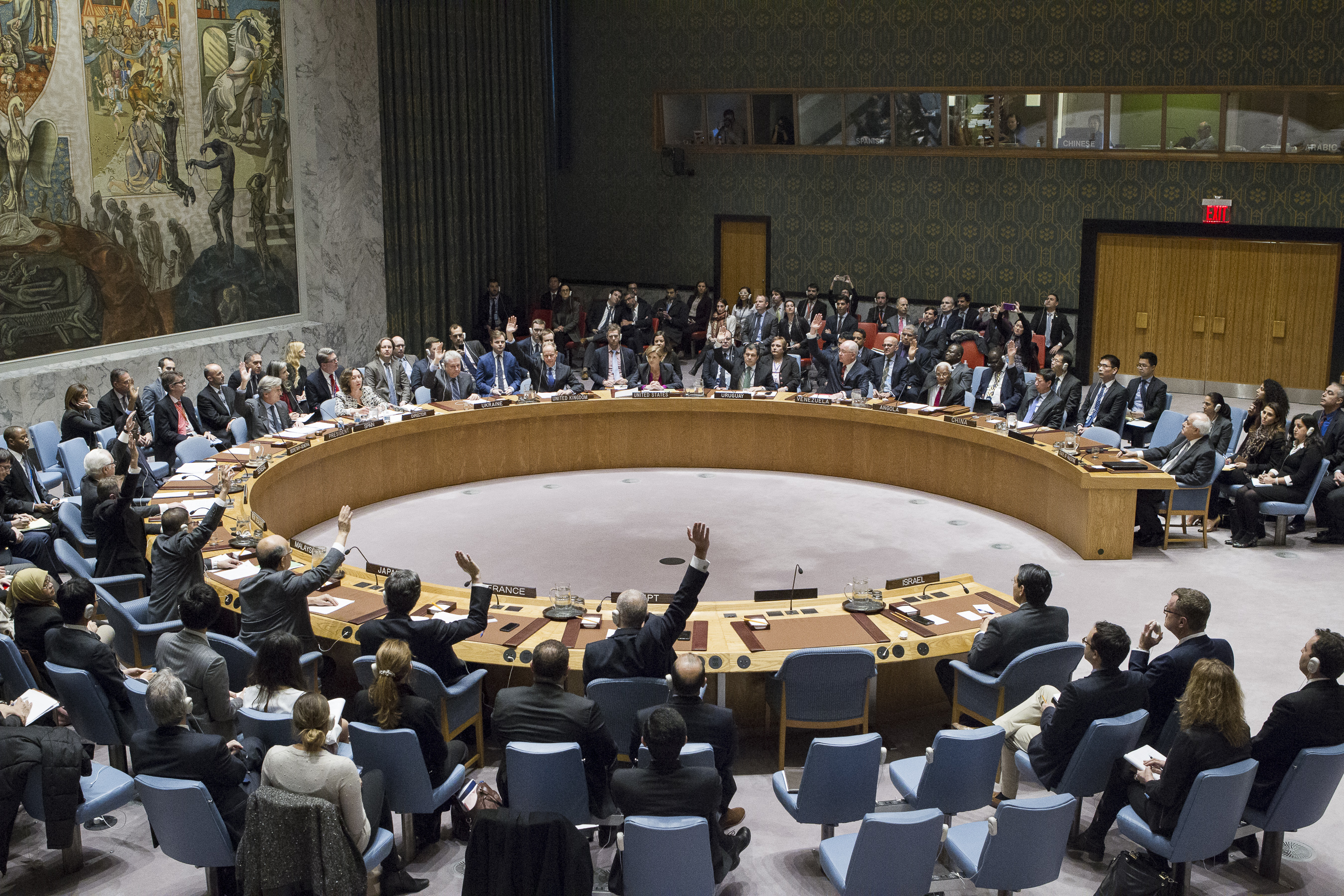
Credit: UN Photo/Manuel Elias
Civil Society
- In Argentina this week, human rights advocate Milagro Sala, and other members of the organization Tupac Amaru, were sentenced to 2-3 years probation, or suspended prison, for “aggravated damage” after participating in a protest. [Telesur]
- A United Nations agency condemned the murder of journalist, Larry Que, of the Phillippines, and called for an investigation into the death as a means of ensuring the safety of other journalists, and protecting freedom of information. [UN News Centre]
- Bahrain released and re-imprisoned activist Nabeel Rajab for comments he made on social media about the war in Yemen and acts of torture allegedly taking place in prisons. [Guardian]
- On Monday in Egypt, a new media law that establishes a body with the power to revoke licenses, fine, or suspend publications, broadcasters, and foreign media, was passed and signed into law, heightening concerns over the freedom of press in the region. [Al Jazeera]
- In Bangladesh, workers in the garment factories protested job loss and workers pay. [Guardian]
- In the wake of recent civil society suppression in Ecuador, UN Special Rapporteurs have offered technical assistance to the government to address problematic legislation, and called for a stop to the dissolution of environmental and indigenous rights groups. [OHCHR Press Release]
Migrants & Refugees
- This week, 36 child asylum seekers who had been living in the informal Calais refugee camp in France initiated individual legal action against the United Kingdom for allegedly failing to process their asylum applications in a timely and appropriate manner. [Guardian]
- In Germany, 20,000 more migrants and refugees have chosen to leave the country in 2016 than in 2015, as Germany’s immigration policies become more restrictive. [Al Jazeera]
Armed Conflict, Violence, & Humanitarian Crises
- On Thursday, the Syrian Army announced the implementation of a cease-fire between government and rebel forces in much of Syria through a deal between Russia, Syria, Iran, and Turkey; the agreement did not include “terrorist organizations.”. [Washington Post]
- This week, the Colombian Congress approved a revised peace deal that provides amnesty to thousands of FARC and army members accused of minor crimes. [BBC]
- A second phase of an Iraqi operation intended to reclaim Mosul began on Thursday. [Al Jazeera]
- On Wednesday, the Syrian Observatory for Human Rights reported air strikes in eastern Syria, which were said to have killed 22 civilians, including 10 children. [Al Jazeera]
Environment
- For the first time in Spain, an anti-pollution measure in Madrid will ban the use of about half of the private cars on roadways on Thursday between 6:30 AM-9:00 PM, with some exceptions, in an attempt to aid public health. [Guardian]
- In Bangladesh this week, experts emphasized the water crisis imminent in the region due to water wastage, pollution, declining groundwater, and increased salinity. [Inter Press Service]
Politics
- The United States Secretary of State reiterated the U.S. commitment to a two-state solution to the Israeli-Palestinian conflict following a UN Security Council resolution condemning Israeli settlement building; the U.S. had abstained from that vote, opening a rift in U.S.-Israeli relations. [Guardian]
- British Prime Minister Theresa May reportedly intends to campaign on a promise to withdraw from the European Convention on Human Rights, an obligatory and binding human rights instrument for all European Union Member States, which gives the European Court of Human Rights jurisdiction over complaints against the United Kingdom. [Rights Info]
- On Thursday, in response to alleged Russian interference in the U.S. presidential election, the Obama administration moved to shut down Russian compounds in the U.S. and declare 35 Russians “persona non grata.” [Washington Post]
- On Friday in Turkey, a parliamentary commission approved a draft of a constitutional amendment that would give the president and vice president complete executive powers, the amendment will go to a referendum most likely in the spring. [Al Jazeera]
- This week, the UN Secretary General praised the newly inaugurated parliament of Somalia and encouraged it to fill empty seats (particularly with women), establish a permanent constitution, and improve its credibility. [UN News Centre]
